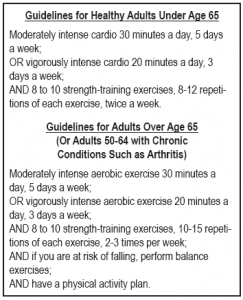Happy Holidays! There are few phrases in the English language that can inspire such joy and stress at the same time. How can you cope? Here are some facts and tips, courtesy of the Virginia Chiropractic Association.
Over the holidays be mindful of what you eat and drink, as well as both how fast and how much you consume. Though your liver can process alcohol, and though exercise and New Year’s diets can help pay for Holiday sins, you’re better off limiting decisions that will make the battle tougher later on. Try a little pace in your Holiday frenzy, and reap the rewards.
Holidays can bring financial stress, family stress, even physical stresses as we hang decorations and clean and cook. These stresses can make us achy, grumpy, or worse. Mental stress not only can make us irritable, it can also make us sick. In one study of medical students, exam time clearly correlated to decreased immune function. i Another study ii showed that high “job strain” increases heart attack rates FOUR TIMES over those with lower job strain. This is equal to the elevated risk of smoking or high cholesterol.
Mark Twain once said, “I am an old man and have known a great many troubles, but most of them have never happened.” Worry is one of the great enemies of an otherwise tranquil spirit. Buddhist spiritual traditions refer to “mindfulness,” defined as “the development of nonjudgmental awareness of thoughts and feelings.” iii Published studies, as well as anecdotal evidence, suggests the effectiveness of mindfulness meditation strategies. iv,v,vi Rather than being the helpless victim of seemingly ingrained reactions to seasonal stresses and family dynamics, individuals may benefit from learning to recognize their feelings as real (I feel a tightness in my shoulders, I’m not breathing as deeply as I do when I’m experiencing happiness, there’s a feeling in my chest like a tightness or blockage) yet transient (“this too shall pass”) human experiences. By experiencing the emotions non-judgmentally we may come to value them as part of life, rather than as forces that control our ongoing capacity for happiness.
Wise doctors will recommend exercise to combat stress, depression, and anxiety. Exercise is a very powerful tool that not only protects your heart and blood vessels, it also protects your brain and is a natural mood elevator. The American College of Sports Medicine recommends regular exercise as a part of a healthy lifestyle vii (see box).
Doctors of chiropractic are far more than neck and back doctors. They focus on function, on quality of life, and on the nervous system’s role in guiding optimal health and well-being. A well-balanced frame and nervous system affects your entire day, and life. What may seem like a subtle modification to your frame or lifestyle may literally save your life by preventing a fall, a hip fracture, or the more subtle and insidious stress and/or chemically-mediated diseases of the heart, brain, and other major organs. As partners in your exercise plan, doctors of chiropractic are uniquely trained to help you live and exercise, safely. That’s “good medicine” for your entire body, and your spirit too.
Written by Daniel A. Shaye, DC, CCSP, FIAMA
All rights reserved.
You may republish or share with proper attribution
iKiecolt-Glaser JK. Brain Behav Immun 1999; 13:61-72. iiKarasek R, et al, Am J of Public Health 1981; 71:694-705. iiiBowen, 2006, as cited at http://clearinghouse.missouriwestern.edu/manuscripts/863.asp. iv http://www.acsm.org/AM/Template.cfm? vhttp://www.sciencedirect.com/science?_ob=ArticleURL&_udi=B7XMX-4JWMSF2-4&_user=10&_rdoc=1&_fmt=&_orig=search&_sort=d&view=c&_acct=C000050221&_version=1&_urlVersion=0&_userid=10&md5=239b9068104bfe1ac33fb2b78c1d6665. vihttp://www.springerlink.com/content/vv02132w61118887/. viihttp://www.acsm.org/AM/Template.cfm?Section=Home_Page&TEMPLATE=/CM/HTMLDisplay.cfm&CONTENTID=7764.